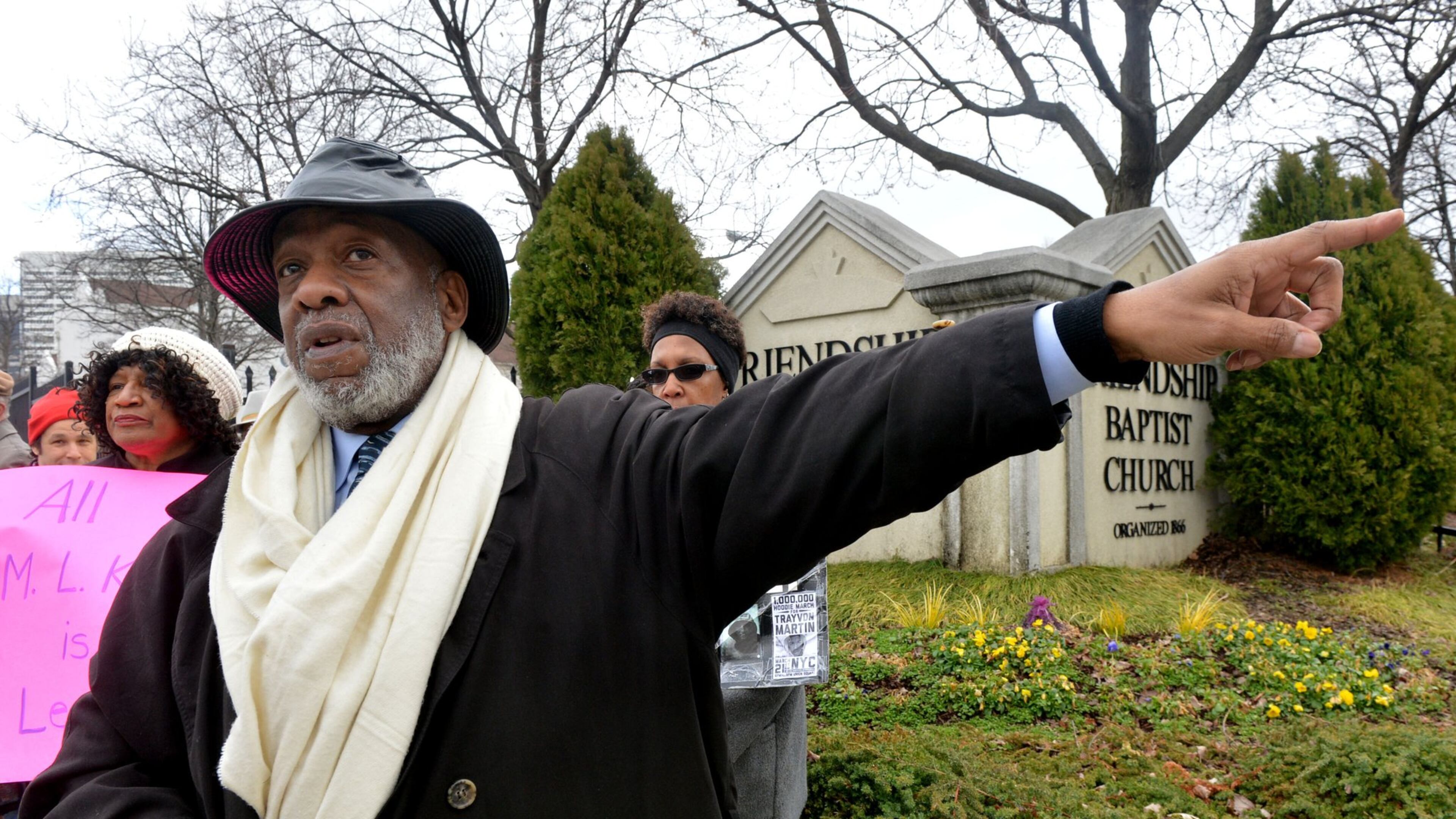Meetings over routine legislation turns into rehash of Falcons stadium concerns

On the path to building the future $1.2 billion Atlanta Falcons stadium, even the simplest procedural steps can be fraught with controversy.
Tuesday’s vote by the Atlanta City Council’s utilities committee on abandoning parts of six streets for stadium roadwork came after weeks of heated debate that dealt as much with racial and economic politics as property matters.
Abandoning the parcels is the latest legislative step in moving forward with stadium construction, which is set to break ground in April. But roadwork — namely the rerouting of Martin Luther King Jr. Drive — is already underway, causing traffic disruptions to the communities near the site.
That’s stirring simmering tensions between some city officials and residents of English Avenue, Vine City and Castleberry Hill who have varying concerns about the stadium project and used Tuesday’s meeting to voice them.
Some are still sore over contentious meetings over how to divvy up $30 million in “community benefit” funds intended for their neighborhoods. Others worry the roadwork near the future stadium will worsen traffic. Many say they want to be better kept informed about stadium plans.
“Please take the time to do this right,” implored Deborah Scott, head of the advocacy group Georgia STAND-UP, who asked the committee to halt the abandonments for a few more weeks. “This could be a win for the Falcons, a win for the city. But please could we get a win for the community?”
Even as folks like Scott want caution, others seek urgency.
Post 1 At-Large Councilman Michael Bond, who lives near the proposed stadium site, appeared at Tuesday’s hearing to implore the committee to move the legislation to the full council for a vote.
“Every concern that was raised here today is legitimate, but has little to do with the street abandonment,” he said. “It has more to do with people who have lived in a neighborhood, a neighborhood in which I’m their neighbor, being in pain.”
Leaders from the football franchise, including Falcons CEO Rich McKay, said the legislation abandoning the sections near the stadium must move forward now so that the team stays on track for a 2017 opening. Should the full council approve the abandonments at Monday’s upcoming meeting, the team can begin seeking necessary permits for rerouting utility lines.
The Falcons team is already facing another potential delay as five residents of Vine City and English Avenue recently mounted a legal challenge to the use of $200 million in bonds backed by hotel-motel taxes for the project.
“A lot of different commitments will not be met if this paper does not go forward,” said Steve Labovitz, of McKenna Long & Aldridge, who is representing the team.
In the big picture, he said, the billion-dollar project will benefit the community.
“Not only is it important for the Falcons and for Arthur Blank to build a magnificent stadium,” he said. “But it is also important, very important for him to make certain that the community is the beneficiary of what’s taking place over there.”
Conveying the six parcels to the Georgia World Congress Center Authority is critical for building the stadium on the so-called south site near MLK and Northside Drives. Though the football team indicated a preference for a plot of land north of the existing dome, Mayor Kasim Reed waged a public battle last year to build the stadium on the southern location because of its proximity to two MARTA stations.
To make the plan work, Friendship Baptist Church and Mount Vernon Baptist Church agreed to sell for $19.5 million and $14.5 million, respectively.
The city utilities committee delayed action on the proposal in recent weeks as residents and some councilmembers called for Reed’s administration and Falcons officials to lay bare plans for the rerouting of MLK Drive, which the mayor has long said he plans to turn into a grand boulevard.
According to the latest plan unveiled by Falcons and city officials, the current straight shot from downtown to West End becomes more of a zig-zag.
Under the proposal, drivers headed west from downtown Atlanta on MLK would swoop south to connect with Mitchell Street. Upon hitting Northside Drive, drivers either continue straight onto Mitchell, which curves back to MLK via Tatnall Street, or make a hard right on Northside, followed by a hard left to reconnect with MLK.
Ga. Tech architecture professor Mike Dobbins has led much of the opposition to their proposed plan, citing concerns it will worsen traffic congestion because it decreases the number of roads heading from those communities to downtown.
The legislation moved to the full council with a split vote — three yays, two nays and two abstentions. Newly elected Post 3 At-large Councilman Andre Dickens and District 7 Councilman Howard Shook voted against its passage.
“The way this has been going is heated because there’s a lack of trust,” Dickens said. “Trust is important and we have to earn that.”

